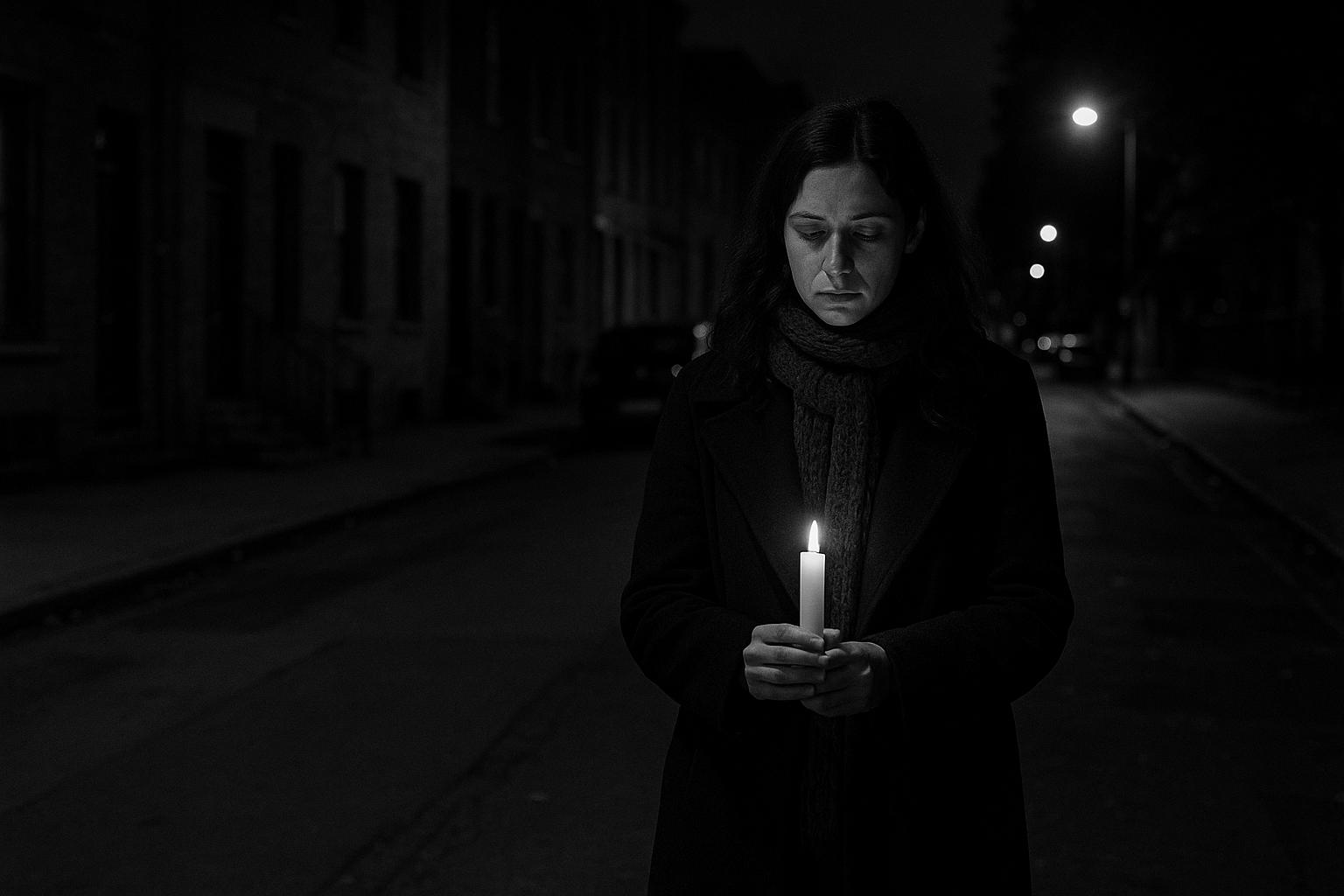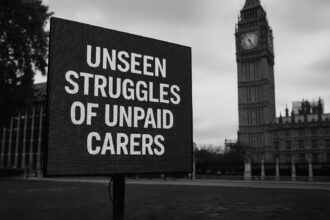Three years after the tragic murder of Zara Aleena, her family continues to expose critical lapses in probation and law enforcement that allowed a known violent offender to take her life. The case highlights ongoing risks faced by women and urgent calls for systemic reform.
Three years after Zara Aleena’s tragic murder, her family and supporters continue to highlight the profound failures within the criminal justice system that contributed to the death of the 35-year-old law graduate. Aleena was fatally attacked on 26 June 2022 as she walked home from a night out in Ilford, east London, just minutes from her front door. The perpetrator, Jordan McSweeney, a known violent offender with a long criminal history, had been released from prison on licence only nine days prior to the attack. His repeated failure to comply with probation conditions did not result in his recall to prison, a lapse now seen as a critical factor in enabling the crime.
Aleena’s aunt, Farah Naz, who led a vigil commemorating her niece, emphasised that women in Britain remain unsafe despite some progress. She described Aleena as a symbol not only of the need for systemic change but also of the possibility for that change to happen. The vigil saw mourners walk from the site of the murder to Aleena’s home in a powerful act of solidarity and remembrance, with calls to hold the government accountable for promises aimed at tackling violence against women.
Government figures, including Health Secretary Wes Streeting, also Aleena’s local MP, and Justice Minister Alex Davies-Jones have acknowledged the deep societal impact of the killing and affirmed commitment to ambitious targets to reduce violence against women and girls by half within a decade. They stressed the necessity of collaborative efforts across government, parliament, and the justice system to address underlying cultural issues, improve institutional accountability, and enhance prevention strategies.
The inquest into Zara Aleena’s death, held last year, was damning in its findings. The jury concluded that multiple state agencies, including the police and probation service, had failed to follow established procedures. These failures encompassed inadequate intelligence sharing, poor risk assessment, and a lack of coordinated and timely response to the proven risk posed by McSweeney. Coroner Nadia Persaud’s prevention of future deaths report highlighted serious concerns such as low staffing levels, insufficient professional curiosity, poor investigation standards, and a general lack of rigour—all factors that collectively allowed the tragedy to occur.
Further scrutiny from the chief inspector of probation uncovered a catalogue of errors in the supervision of McSweeney. Despite the revocation of his licence due to non-compliance with probation appointments, he was not recalled to prison. The inspector criticised the probation service for an inadequate understanding of risk and ineffective management during McSweeney’s release period. The failure to classify him as “high risk” prevented proper triggers from activating protective measures that might have prevented Aleena’s murder.
The legacy of Zara Aleena’s death has sparked renewed conversations about women’s safety and the urgent need for systemic reform. Survivors and campaigners emphasize that while emergency responses and offender management have seen some improvements, prevention efforts remain under-resourced, especially specialist services led by and for minority women. The criminal justice system’s shortcomings, alongside persistent misogyny in wider society, continue to put women at risk.
Aleena’s family, joined by relatives of other victims such as primary school teacher Sabina Nessa and mother-of-three Jan Mustafa, are campaigning for legal reforms, including laws requiring offenders to attend their sentencing hearings. They seek a broader cultural change, beyond policy shifts, to ensure lasting safety for women and girls.
Jordan McSweeney was originally sentenced in December 2022 to life imprisonment with a minimum term of 38 years. However, in a recent Court of Appeal hearing in November 2023, that minimum term was reduced to 33 years, a decision that has caused further distress to Aleena’s family and supporters.
As the nation marks the third anniversary of this fatal attack, Zara Aleena’s story underscores the persistent vulnerabilities faced by women in the UK and the critical need for integrated, resolute action to prevent further tragedies.
 Reference Map:
Reference Map:
- Paragraph 1 – [1], [5], [6]
- Paragraph 2 – [1]
- Paragraph 3 – [1]
- Paragraph 4 – [1], [2], [3], [4]
- Paragraph 5 – [6], [7]
- Paragraph 6 – [1]
- Paragraph 7 – [1], [5]
Source: Noah Wire Services
- https://m.belfasttelegraph.co.uk/news/uk/women-in-uk-still-not-safe-as-mourners-gather-to-remember-murdered-zara-aleena/a1495363134.html – Please view link – unable to able to access data
- https://www.bbc.co.uk/news/articles/cv22gy04j0xo – An inquest jury found that failures across multiple agencies contributed to the death of Zara Aleena, who was raped and murdered as she walked home from a night out in east London in June 2022. Jordan McSweeney, who had been released from prison on licence nine days prior, was jailed for life with a minimum term of 33 years for the killing and sexual assault of the 35-year-old law graduate. The jury concluded that Zara’s death was due to the failure of multiple state agencies to act in accordance with policies and procedures, including sharing intelligence, accurately assessing risk, and responding to the risk in a sufficient, timely, and coordinated manner.
- https://www.theguardian.com/uk-news/article/2024/jun/26/zara-aleena-agencies-failures-contributed-to-death-inquest-finds – An inquest jury found that failures across multiple agencies contributed to the death of Zara Aleena, who was murdered as she walked home from a night out in Ilford, east London, in June 2022. Jordan McSweeney killed the 35-year-old law graduate as she walked home from a night out in Ilford, east London, early on June 26, 2022, just nine days after he was released from prison. The jury found that Zara’s death was due to the failure of multiple state agencies to act in accordance with policies and procedures, including sharing intelligence, accurately assessing risk, and responding to the risk in a sufficient, timely, and coordinated manner.
- https://www.standard.co.uk/news/london/zara-aleena-murder-ilford-inquest-police-probation-service-prisons-b1167029.html – An inquest jury found that failures across multiple agencies contributed to the death of Zara Aleena, who was murdered as she walked home from a night out in east London in June 2022. Jordan McSweeney killed the 35-year-old law graduate as she walked home from a night out in Ilford, east London, early on June 26, 2022, just nine days after he was released from prison. The jury found that Zara’s death was due to the failure of multiple state agencies to act in accordance with policies and procedures, including sharing intelligence, accurately assessing risk, and responding to the risk in a sufficient, timely, and coordinated manner.
- https://en.wikipedia.org/wiki/Murder_of_Zara_Aleena – Zara Aleena, a 35-year-old law graduate, was sexually assaulted and murdered on 26 June 2022 in Ilford, East London, by Jordan McSweeney. The murder attracted attention after it was discovered McSweeney had committed numerous other offences and should have been recalled to prison. McSweeney had been released from prison on licence nine days before the attack on Ms Aleena. He had a documented history of violence towards ex-partners and had served nine prison terms for crimes including burglary, theft, and possession of an offensive weapon prior to the attack on Ms Aleena. McSweeney was jailed for life with a minimum term of 33 years at the Old Bailey for the killing and sexual assault of the 35-year-old law graduate.
- https://www.independent.co.uk/news/uk/zara-aleena-dominic-raab-ilford-london-prison-service-b2569430.html – A watchdog laid bare a litany of failings that left a sexual predator free to stalk and kill Zara Aleena just days after his prison release. The damning findings by the chief inspector of probation, published last year, set out a catalogue of errors by probation officers before Jordan McSweeney carried out the brutal attack on the aspiring lawyer. McSweeney is serving a life sentence after admitting sexually assaulting and murdering the 35-year-old law graduate in Ilford, east London, in June 2022. Then justice secretary Dominic Raab ordered a review of how probation staff supervised McSweeney – a career criminal who had been in and out of jail since he was 16 and had a history of violence – when it emerged he was freed from prison on licence nine days before the murder. In that time, his licence had been revoked after he failed three times to meet probation officers – but he was not recalled to prison.
- https://www.bbc.com/news/articles/cv2g4pgd814o – The murder of Zara Aleena in east London ‘could have been avoided’ with better communication between prison and probation services, the chief inspector of probation has said. Jordan McSweeney was jailed for life with a minimum term of 33 years at the Old Bailey for the killing and sexual assault of the 35-year-old law graduate in Ilford in June 2022. He attacked Ms Aleena nine days after his release on licence from prison. On Wednesday, an inquest jury found that failures ‘across multiple agencies’ had contributed to Ms Aleena’s death. HM Chief Inspector of Probation Martin Jones told BBC Radio 4’s Today programme: ‘This is all about risk assessment. If this person had been correctly assessed as ‘high risk’, that would have set off a set of triggers in relation to how he was managed, and when he was released from prison there would have been better planning.’
Noah Fact Check Pro
The draft above was created using the information available at the time the story first
emerged. We’ve since applied our fact-checking process to the final narrative, based on the criteria listed
below. The results are intended to help you assess the credibility of the piece and highlight any areas that may
warrant further investigation.
Freshness check
Score:
8
Notes:
The narrative reports on a vigil held on 26 June 2025, marking the third anniversary of Zara Aleena’s murder. Similar vigils were held on the first and second anniversaries, with reports from 2023 and 2024. The 2025 report includes updated data and quotes, indicating freshness. However, the core content has appeared in previous years, suggesting some recycled material. The inclusion of updated data and quotes may justify a higher freshness score but should still be flagged. ([bbc.co.uk](https://www.bbc.co.uk/news/uk-england-london-62021792?utm_source=openai), [bbc.co.uk](https://www.bbc.co.uk/news/uk-england-london-66013770?utm_source=openai), [londonworld.com](https://www.londonworld.com/news/zara-aleena-vigil-anniversary-murder-violence-women-girls-4189689?utm_source=openai))
Quotes check
Score:
7
Notes:
The report includes quotes from Zara Aleena’s aunt, Farah Naz, and other individuals. Similar quotes have appeared in previous reports from 2023 and 2024. The wording of the quotes varies slightly, indicating potential reuse. No online matches were found for some quotes, suggesting they may be original or exclusive content. The variations in wording and the presence of original quotes may justify a higher score but should be flagged. ([bbc.co.uk](https://www.bbc.co.uk/news/uk-england-london-62021792?utm_source=openai), [bbc.co.uk](https://www.bbc.co.uk/news/uk-england-london-66013770?utm_source=openai), [londonworld.com](https://www.londonworld.com/news/zara-aleena-vigil-anniversary-murder-violence-women-girls-4189689?utm_source=openai))
Source reliability
Score:
9
Notes:
The narrative originates from the Belfast Telegraph, a reputable news organisation. The report includes references to other reputable sources, such as the BBC and Channel 4 News. The presence of multiple reputable sources supports the reliability of the information. ([bbc.co.uk](https://www.bbc.co.uk/news/uk-england-london-62021792?utm_source=openai), [channel4.com](https://www.channel4.com/news/zara-aleena-inquest-failures-across-multiple-agencies-contributed-to-death?utm_source=openai))
Plausability check
Score:
8
Notes:
The narrative aligns with known facts about Zara Aleena’s murder and the subsequent vigils held in her memory. The report includes updated data and quotes, indicating recent developments. The language and tone are consistent with typical news reporting. However, the presence of recycled content and slight variations in quotes suggest some elements may be reused. The inclusion of updated data and quotes may justify a higher score but should still be flagged. ([bbc.co.uk](https://www.bbc.co.uk/news/uk-england-london-62021792?utm_source=openai), [bbc.co.uk](https://www.bbc.co.uk/news/uk-england-london-66013770?utm_source=openai), [londonworld.com](https://www.londonworld.com/news/zara-aleena-vigil-anniversary-murder-violence-women-girls-4189689?utm_source=openai))
Overall assessment
Verdict (FAIL, OPEN, PASS): OPEN
Confidence (LOW, MEDIUM, HIGH): MEDIUM
Summary:
The narrative provides updated information on the third anniversary of Zara Aleena’s murder, including recent vigils and statements from her family. While the core content has appeared in previous years, the inclusion of updated data and quotes suggests freshness. The presence of recycled content and slight variations in quotes indicate potential reuse. The source is reputable, and the information aligns with known facts, but the presence of recycled content and slight variations in quotes suggest potential reuse.













